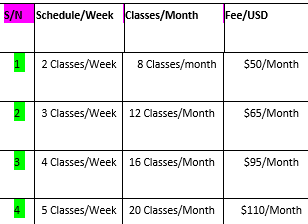Singular, Dual and Plural Nouns In Arabic Language
(المفرد والمثنى والجمع)
By: Yusuf Basirat Bolanle
Discussion
In Arabic language, nouns are divided according to their numbers into three main parts. They are:
1- The Singular Noun (المفرد)
2- The Dual Noun (المثنى)
3- The Plural Noun (الجمع)
The Singular (المفرد)
The Singular nouns in Arabic language are the nouns with the counting number of only one (المفرد). A Singular item, either feminine or masculine is regarded as (المفرد) or (المفردة) in Arabic term. This Singular item can be person, animal, place or an ordinary item. The singular item in feminine noun can be identified mostly by ending with a close taa (ة), while the singular masculine item can be free of any attachment.
The Dual Noun (المثنى)
The dual in arabic language is known as (المثنى). the dual are the items which are only two in number. Any item lesser or more than two is not regarded as dual any more. It will either be a singular or plural item. The dual nouns can as well be found in masculine, feminine, man, animal and things too, just like singulars. The dual noun in arabic language can be identified by the addition of dual alif and nun (ا، ن) to the end of the singular noun, both masculine and feminine nouns.
The plural nouns (الجمع)
The plural in arabic language is called (الجمع). The plural nouns are the nouns which are more than two entities or items. In arabic language, the two items are regarded as dual while any items more than two are regarded as plural. that is, the items starting from three number upward are known as the Plural Items in arabic language. The plural noun can be formed with the addition of waw and nun (و، ن) to the masculine noun with healthy ends while addition of alif and taa (ا، ت) to the feminine noun with healthy or sound ends
The Following are the table showing the examples of the singular, Dual and The Plural Nouns In Arabic Language.
| الجمع | المثنى | المفرد |
|---|---|---|
| Plural | Dual | Singular |
| كتب many books | كتابان two books | كتاب a book |
| أولاد many boys | ولدان two boys | ولد a boy |
| رجال many men | رجلان two men | رجل a man |
| بيوت many houses | بيتان two houses | بيت a house |
| أقلام many pens | قلمان two pen | قلم a pen |
| ِكلاب many dogs | كلبان two dogs | كلب a dog |
| َكراسي many chairs | كرسيان two chairs | كرسي a chair |
| عيون many eyes | عينان two eyes | عين an eye |
| ِمساجد many mosques | مسجدان two mosques | مسجد a mosque |
| أكواب many cups | كوبان two cups | كوب a cup |
| ِمكاتب many tables | مكتبان two tables | مكتب a table |
| فلاحون Many farmers | فلاحان two farmers | فلاح a farmer |
|---|---|---|
| مدرسون Many teachers | مدرسان two teachers | مدرس a teacher |
| مسلمون many muslims | مسلمان two muslims | مسلم a muslim |
| مهندسون many engineers | مهندسان two enginners | مهندس An engineer |
| الجمع | المثتى | المفردة |
|---|---|---|
| Plural | Dual | Singular |
| بنات many girls | بنتان two girls | بنت a girl |
| مسلمات many female Muslims | مسلمتان two female Muslims | مسلمة a female Muslim |
| غرف many rooms | غرفتان two rooms | غرفة a room |
| طبيبات many female doctors | طبيبتان two female doctors | طبيبة a female doctor |
| نساء many women | امرأتان two women | امرأة a woman |
| ساعات many watches | ساعتان two watches | ساعة a watch |
| والدات many mothers | والدتان two mothers | والدة a mother |
| لعبات many play toys | لعبتان two play toys | لعبة a play toy |
| مدرسات many female teachers | مدرستان two female teachers | مدرسة a female teacher |
| طالبات many female students | طالبتان two female students | طالبة a female student |
| مدارس many schools | مدرستان two schools | مدرسة a school |











2 Comments
What is dual of mosjid
ReplyDeleteMosjidaani (مسجدان)
Delete